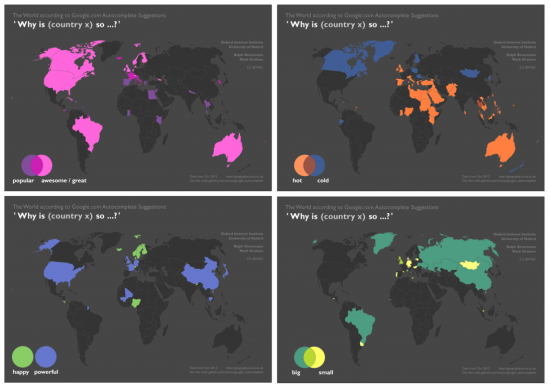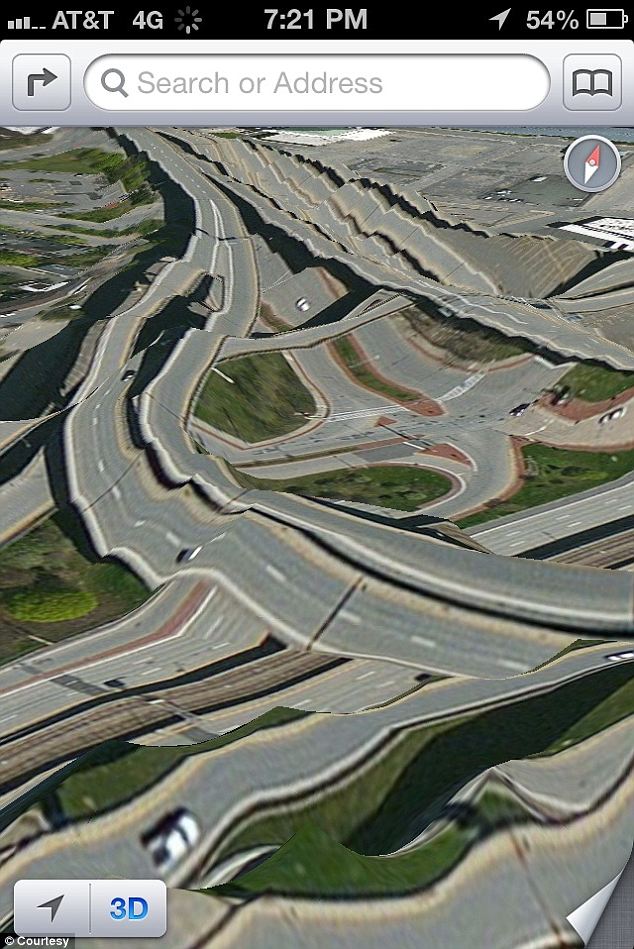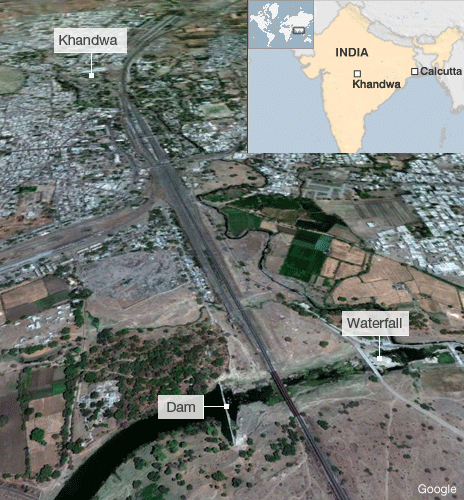What Google Autocomplete tells us about countries
Together with my collaborators in the “Information Geographies” project at the Oxford Internet Institute, I have published a blogpost that analyses Google Autocomplete. This is seemingly a popular pastime these days, but unlike the maps I have seen so far, we don’t just map the most prominent term for each country but actually visualise multiple categories, often in one map.
Why does it matter?
Autocomplete is Google’s ‘type-ahead’ suggestion algorithm: As soon as you enter a word or two into the Google Search field, the algorithm will try to guess the completion of your query and offers you a list of likely queries. This functionality is baked into Google’s interface and cannot be turned off by the user.
It’s unclear if and how much such algorithms affect our perception of the subjects that we are querying for. But we can certainly say that they reduce serendipity and can help reinforcing filter bubbles.

Data acquisition and cartographic technique
The data that went into these maps Continue reading “What Google Autocomplete tells us about countries”


